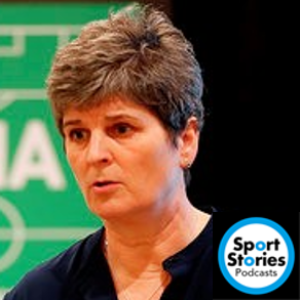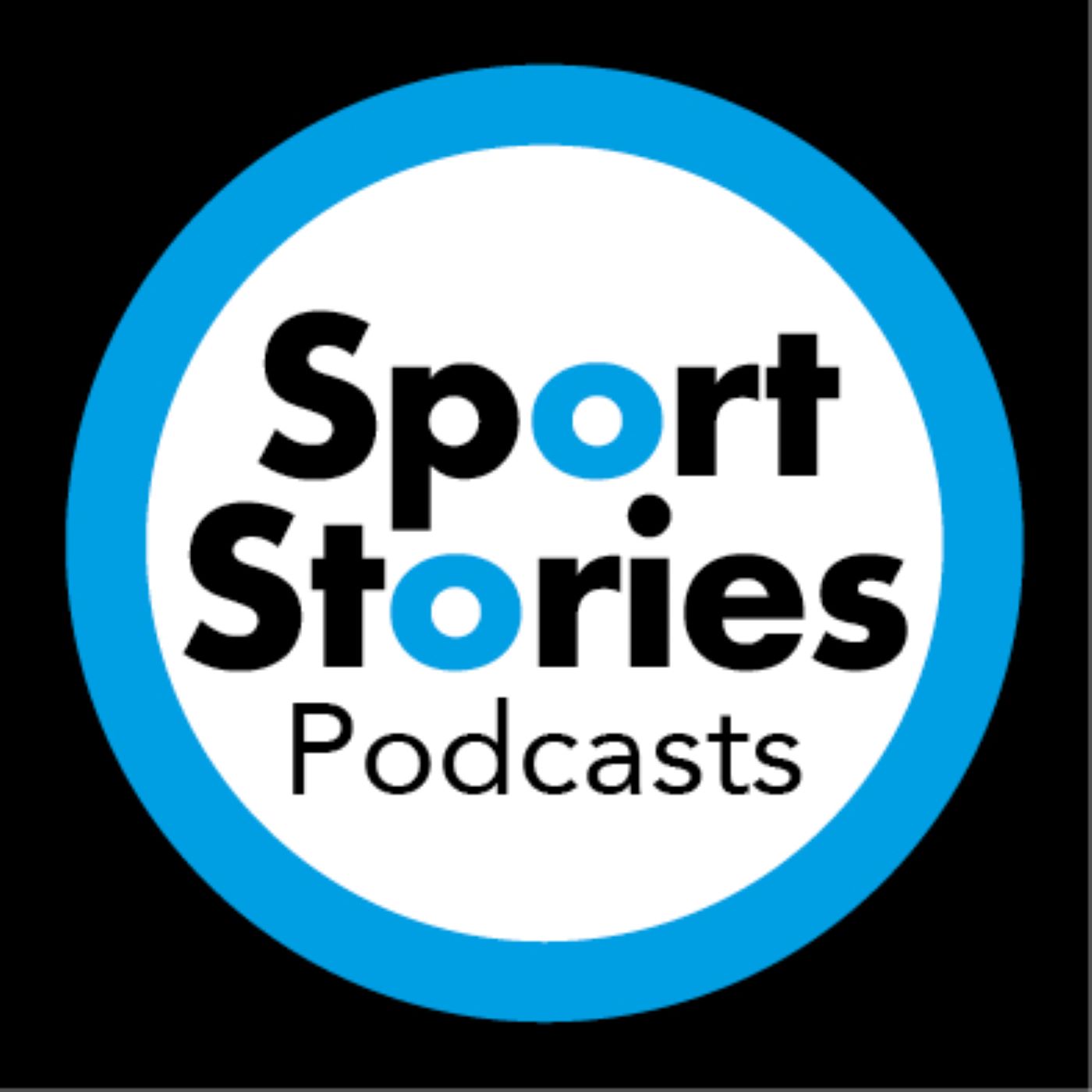Episodes

Monday Feb 08, 2021
Monday Feb 08, 2021
An amazing insight in Karen’s involvement in 6 Olympic Games whilst not enjoying being in the spotlight. She openly shares the highs and lows of a life-time in sport, building teams and getting the best from individuals, managing the transition from player to coach and lifestyle choices.
Karen, in a very humble and clear way, shares her journey, offering some amazing pieces of advice in how she has been so successful. It is a truly brilliant opportunity for parents, teachers, coaches and leaders to learn from a successful women in sport who truly has a passion for helping people and in turn putting them in the spotlight.
This is a bit more about Karen…
Karen Brown MBE is a former field hockey defender, who was a member of the British squad that won the bronze medal at the 1992 Summer Olympics in Barcelona, Commonwealth Silver medal and European Gold Brown is England and Great Britain's second-highest capped player of all time, with 355 caps to her name.
She was Assistant Coach for both the Great Britain and England hockey teams and part of the management teams that secured a World Cup bronze with England in 2010, Olympic bronze with Great Britain at the London Olympics, European Gold in 2015 and Olympic Gold at the Rio Olympics.
She stepped down from her role as Assistant Coach in January 2017, and now works in a coach developer capacity for England and GB Hockey as well as UK sport.
If you enjoy the podcast, please consider leaving a short review on Apple Podcasts/iTunes. It only takes a minute and really makes a difference in helping to convince new listeners. Thanks so much it - is much appreciated!!
For show notes and past guests, please visit www.sportstories247.com
Interested in sponsoring the podcast? Please make contact at: hello@sportstories247.com
Follow Sport Stories:
Twitter: twitter.com/sportstories_
Instagram: Instagram.com/sportstories247
Facebook: facebook.com/sportstories247
LinkedIn: https://www.linkedin.com/company/sportstories
YouTube: Sport Stories YouTube Channel
Find out more about Dave at: www.thesummitpartnership.com
Follow Dave:
Twitter: https://twitter.com/SummitDave
LinkedIn: https://www.linkedin.com/in/davelevine3
Key quotes, saying and comments :
I was aware the I was talented at the age of 4 or 5. I could do things others couldn’t
Mr Shawney (Teacher at School) – “Karen – whichever sport you choose you will play for England at it!”
The feeling coming back to me when making my debut for England at Hockey (at Wembley)
As an athlete I was driven by fear of failure?
I had many doubts about myself – it evoked fear
Started coaching in schools with your kids
I learnt - There is nothing wrong in telling people they CAN do things and giving them time and focus – there is a tendency to lean towards what people cant do and only helping them.
Tell people – you do realise you are really good at this. You have a special talent!
There weren’t the avenues for talented girls in sport that are available today
An fortuitous opportunity arose to play with the School Hockey 1st team
My dad said – you will like that, you will enjoy that (going to the county Hockey tournament)
Within 4 months - not playing the sport through to paying for England U18’s (aged 16yrs)
At a young age don’t specialise in any one sport
I learnt from athletics that I wanted to be part of a team *
Really explore – find your niche – don’t be restricted and try things out
The culture behind the sport was so important for me
You can take bits of learning from everything and apply it in other parts of your life *
You can’t learn from it unless you give it a go *
I was far more conscious of what I could do rather than what I couldn’t
It felt like it came quite naturally and that I didn’t work hard at it (though I did infact work hard)
It didn’t feel like hard work – I was just really curious about it and what could and would happen if I did….
I was always curious about exploring different ways of doing things
I developed technical skill through practice but it felt like fun (playing about in the fields around where I lived)
The importance of the cues you get from your environment and surroundings in early years
Senior debut in 1984
Unfairness and equal opportunities playing out – 6 teams for the women and 12 for the men
First Olympics in 1988
The disappointments earlier on in my career shaped
Highlight of playing career – qualifying for Seoul in 1988 by beating Russia in best of 3 games
I didn’t know my dad had represented GB at the Olympics until I was about 14yrs
Trained with Zola Budd
I have always been fascinated by the Olympics – all the sports!!
I took time to reflect on the lows and earnt from them
Building and developing year on year
Recognising the importance of winning the game as part of the broader process/journey
I learnt – no to dwell to much about what has gone in the past
The importance of being able to ‘shut the door’ on one part of the process and move on to the new
You have to debrief really well to enable yourself to ‘shut the door’ and move on. At team, personal and team within the team level
Capture what would I do differently should I have this opportunity again. THAT’S THE GOLD DUST
Asking myself – how did I deliver against those responsibilities
I’ve learnt – don’t ever ask an athlete (especially under pressure ie in Olmpics) to do something (a tactic or technique) that you have never seen them do before
In many ways – under high pressure go back to basics. Only do things you know can be done under pressure and has therefore been done before.
Stick to judgement not luck!
Great principles - We trained harder than what we thought it would be on a match day
We spend a lot of time on ‘how do you train the brain’. EG How do you want to feel and what do you want to think when….
Pulling out of them with questions - Often solving a problem for an athlete in the moment but saving a bigger problem for later by not developing them
Transitioned as a coach from more tell to nowdays much more self-discovery and go on a journey together.
You have to know the person (athlete) in front of you.
It is a coaches job (or leader, teacher) to flex their style and connect with the individuals that make up that team
Show me how to do it then let me have a go and I will get it really quickly. (Great learning theory and approaches)
Fantastic example of situational leadership (Skill Development Journey)
I love what I do and am incredibly fortunate to do what I do.
One of my key values is that I like helping people
I don’t like being in the spotlight but like playing my part in putting others in the spotlight
I was privileged to be asked to be captain of England – and turned it down.
I think my skill sets and what I would prefer to be are..
I love working behind the scenes but wouldn’t choose to get up on the pedestal
Happy people perform better * The happier I am the better I will do my job*
Its really important to really understand the ‘game’ that you are playing in
The journey needs to be so much more than just the outcome, its got to be bigger then that, its got to be about how they (we) grow as individuals
If you have never tried it then you will not know what the result will be
One of the traits I look for in athletes is, are they curious and do they really/truly want to improve
I get a real buzz seeing people develop
I am a believer in displaying the behaviours you want to see in others
I learnt that if I felt right I would think right. The feeling had to come before the thought
Take people back to ‘when did it all feel effortless’
My manager went so against the grain – he explored what was best for the customer. I serve the customer not the organisation. As a result the customers trusted him
Quick fire questions:
|
The books that you would recommend are? |
|
Winning!: The path to Rugby World Cup glory by Clive Woodward |
|
Black Box Thinking: Marginal Gains and the Secrets of High Performance by Matthew Syed World's Best: Coaching with the kookaburras and the hockeyroos by Ric Charlesworth |
|
|
|
How do I prepare to be the best version of myself… |
|
I have to get my head in the right space – prepare my brain so I can perform Clear the clutter out of my head and make myself feel right
|
|
What advice would you give to your teenage version of yourself? |
|
Try enjoy whatever it is you are going to do Always make sure you are curious in what you do and have an interest to get better
|
|
Who has made a big impact on you? |
|
John Edwards (who I worked with at the Nat west Bank)
|
|
Whos’ Sport Story would you be really interested in hearing? |
|
Richard Charlesworth
|
Coaching questions I would like to pose:
|
1 |
As an Athlete Karen was Driven by a fear of failure – what drives and motivates you? |
|
2 |
Karen mentioned her feelings towards being in the spotlight – What is your relation to being in the spotlight and what do you like and not like and what is the reason behind this? |
|
3 |
Give some attention to - what do you really value and enjoy? |
|
4 |
If you believe (as both Karen and I do) that Happy people perform better – what role do you play in making those around you be happier that you wish for them to perform better? |
|
5 |
How do you reward yourself? |
Contact info:
Karen can be found on Twitter and LinkedIn. Alternatively contact me at hello@sportstories247.com and I will pass on her details.


No comments yet. Be the first to say something!